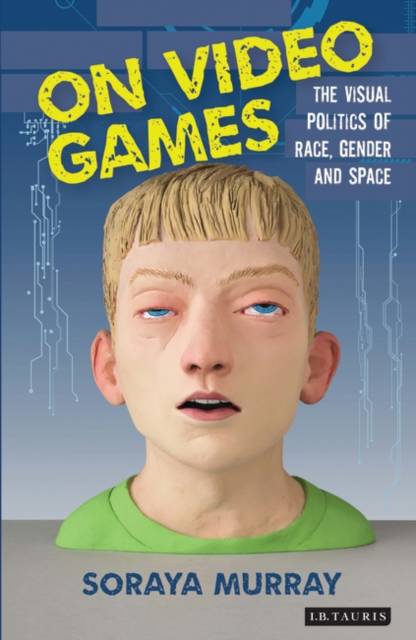
Bedankt voor het vertrouwen het afgelopen jaar! Om jou te bedanken bieden we GRATIS verzending (in België) aan op alles gedurende de hele maand januari.
- Afhalen na 1 uur in een winkel met voorraad
- In januari gratis thuislevering in België
- Ruim aanbod met 7 miljoen producten
Bedankt voor het vertrouwen het afgelopen jaar! Om jou te bedanken bieden we GRATIS verzending (in België) aan op alles gedurende de hele maand januari.
- Afhalen na 1 uur in een winkel met voorraad
- In januari gratis thuislevering in België
- Ruim aanbod met 7 miljoen producten
Zoeken
€ 271,45
+ 542 punten
Uitvoering
Omschrijving
Today over half of all American households own a dedicated game console and gaming industry profits trump those of the film industry worldwide. In this book, Soraya Murray moves past the technical discussions of games and offers a fresh and incisive look at their cultural dimensions. She critically explores blockbusters likeThe Last of Us, Metal Gear Solid, Spec Ops: The Line, Tomb Raider and Assassin's Creed to show how they are deeply entangled with American ideological positions and contemporary political, cultural and economic conflicts.As quintessential forms of visual material in the twenty-first century, mainstream games both mirror and spur larger societal fears, hopes and dreams, and even address complex struggles for recognition. This book examines both their elaborately constructed characters and densely layered worlds, whose social and environmental landscapes reflect ideas about gender, race, globalisation and urban life. In this emerging field of study, Murray provides novel theoretical approaches to discussing games and playable media as culture.
Demonstrating that games are at the frontline of power relations, she reimagines how we see them - and more importantly how we understand them.
Demonstrating that games are at the frontline of power relations, she reimagines how we see them - and more importantly how we understand them.
Specificaties
Betrokkenen
- Auteur(s):
- Uitgeverij:
Inhoud
- Aantal bladzijden:
- 336
- Taal:
- Engels
- Reeks:
Eigenschappen
- Productcode (EAN):
- 9781784537418
- Verschijningsdatum:
- 30/12/2017
- Uitvoering:
- Hardcover
- Formaat:
- Genaaid
- Afmetingen:
- 140 mm x 216 mm
- Gewicht:
- 544 g

Alleen bij Standaard Boekhandel
+ 542 punten op je klantenkaart van Standaard Boekhandel
Beoordelingen
We publiceren alleen reviews die voldoen aan de voorwaarden voor reviews. Bekijk onze voorwaarden voor reviews.









